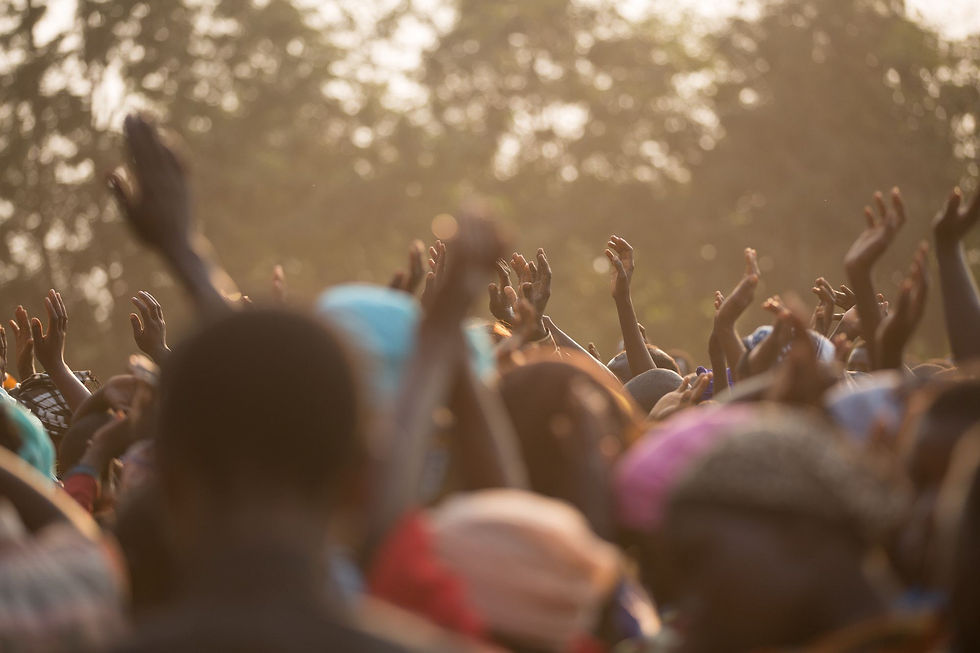Can The Social Business Model Make Poverty History?
- JMBR

- Mar 26, 2018
- 4 min read
By Mathilde Ngo Mbom

Quality of life is better today than it has ever been before. The 2016 Poverty and Shared Prosperity Report from the World Bank noted that work to end extreme poverty is beginning to bear fruit. Between 1990 and 2013, the percentage of people reported to be living on less than $2.50 a day has decreased by 35 percent. Moreover, during the same time period, nearly 1.1 billion people have moved out of poverty. The efforts to reduce extreme poverty are working - however, this progress has been unequally distributed. In the Pacific and South Asian regions, 102 million people have achieved income mobility when compared to just 4 million people in Sub-Saharan Africa. Additionally, a 2014 report by the Oxford Poverty and Human Development Initiative reports that most poor people live in rural areas in contrast to larger urban cities. While there are varying causes of poverty across communities, whether rural or urban, academics and philanthropists alike have been promoting the use of the social business model to fight this issue.
What is a Social Business?
The term social business was coined by the creator of microcredit, professor and Nobel laureate Muhammad Yunus. In the book “Creating a World without Poverty: Social Business and the Future of Capitalism,” he defines a social business as a non-loss, non-dividend company created and designed to solve a social problem. He tested this framework when he created the Grameen Bank (Bank for the Poor), which aimed to provide small loans to the impoverished living in Bangladesh without requiring collateral.

How Can Social Business Contribute in Fighting Poverty?
Adam Smith, considered one of the founding fathers of the economic discipline, assumed that human beings act selfishly, only prioritising personal gain when making decisions and investments, with no consideration of any social dimension. This assumption has been proven to be outdated for the current age; according to a 2014 Millennial Impact Report released by HR and project management firm Achieve Consulting Inc., 94 percent of millennials desire to use their skills for good. Therefore, Professor Yunus argues that economic reform achieved by social businesses will lead organizations to acknowledge that human beings are motivated by philanthropy as well. In fact, this trend is being seen through organizations using the triple bottom line framework, with which equal consideration is given to social, environmental (or ecological) and financial measures to run their daily operations and assess success.
What Have Social Businesses Achieved So Far?
Social businesses have proven to be successful from Dhaka, Bangladesh to Paris, France. To illustrate, a non-for profit venture following the Yunus Social Business (YSB) model that turned donations into social businesses helped create over 15,000 jobs and changed the lives of over 2 million people in Colombia, Brazil, Haiti, The Balkans, Tunisia, India, and Uganda. Furthermore, the model is just as successful in developing and developed countries. In 2010, the Action Tank Entreprise et Pauvreté came to life in France as a social business think tank that used the social business model to alleviate poverty. In collaboration with public institutions, academia, large companies and non-profit organizations, the think tank has initiated various projects, providing services from banking to improved employment access.
The business model has a lot more to offer. According to the Better Business Better World report produced by the Business and Sustainable Development Commission, social businesses addressing sustainable development goals (SDGs) could create more than 380 million new jobs and generate revenues and savings worth more than $18 trillion by 2030. This would eventually result in millions of people being lifted out of poverty.

What are the Challenges of Social Businesses?
Like any other type of organization, social businesses face a number of barriers. According to a 2008 report from the United Nations Development Programme examining social enterprise as a model for poverty reduction, these challenges include the lack of a supportive political environment and infrastructure, unsuitable institutional frameworks and an inconsistent legal environment. In order to face these challenges and tap into the growing potential of the social business ecosystem, Professor Yunus in the book “A World of Three Zeros: The New Economics of Zero Poverty, Zero Unemployment, and Zero Net Carbon Emissions,” provides some stepping stones to overcome these obstacles . According to Professor Yunus, governance and the respect for human rights are essential to build a society that works for everyone, not only the rich and the well connected. He also adds that there needs to be a reform with the current legal and financial infrastructure to fully utilize all the market forces at work in society.
Will You Be the Next One to Step Up?
The social business model accurately represents the altruistic nature of human beings by generating value through poverty alleviation, as opposed to the sole focus on perpetuating a capitalist society. So far, social businesses have tremendously contributed to millions of people’s lives around the world, and have proven to be efficient in eradicating poverty. Moreover, the model shows a promising future despite some challenges it faces.
During the 2017 graduation season, Bill Gates, the second richest man in the world, revealed that his greatest regret was not being aware of global inequities earlier in his life. Contributing toward eradicating poverty should not only a governmental pursuit, but a personal one as well. The YSB model was set up by Saskia Bruysten and Sophie Eisenman who left their well-paying careers at the Boston Consulting Group to embark on a poverty eradication movement. Hopefully, future generations continue the pursuit of this cause by individually and collectively taking on more initiatives to make poverty history.






